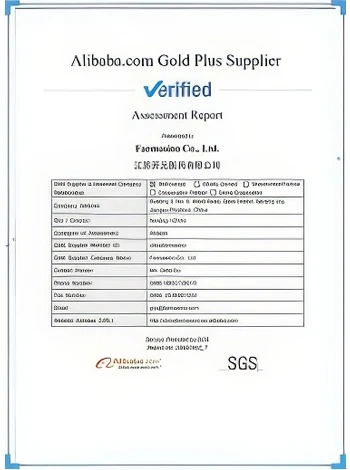



monopotassium phosphate mkp 0 52 34
Understanding Monopotassium Phosphate (MKP) 0-52-34 A Key Fertilizer for Modern Agriculture
Monopotassium phosphate (MKP), chemically represented as KH2PO4, is a highly soluble fertilizer that provides essential nutrients vital for plant health and growth. With an N-P-K ratio of 0-52-34, MKP is especially rich in phosphorus and potassium, making it an excellent choice for various agricultural applications. This article will explore the significance of MKP in modern farming, its benefits, and its practical applications.
The Importance of Nutrients in Agriculture
Agricultural crops require a range of nutrients to thrive, with macronutrients such as nitrogen (N), phosphorus (P), and potassium (K) playing critical roles in plant development. While nitrogen is essential for leaf growth and overall plant vigor, phosphorus is fundamental for energy transfer, photosynthesis, and root development. Potassium, on the other hand, helps regulate various physiological functions, including water retention, enzyme activation, and disease resistance.
Given that MKP contains no nitrogen but is concentrated with phosphorus (52%) and potassium (34%), it is particularly beneficial in specific growth stages of the plant lifecycle where these nutrients are crucial for development, such as flowering and fruiting
.Key Benefits of MKP Fertilizer
1. High Solubility One of the standout features of MKP is its high solubility in water. This property allows for quick absorption by plants when applied, ensuring that the nutrients are readily available during critical growth stages. This is especially beneficial for hydroponic systems and foliar applications.
2. Balanced Nutrient Supply The high phosphorus content in MKP promotes root development and enhances flower formation, which can lead to improved fruit yield and quality. Meanwhile, adequate potassium aids in stress resistance, making plants more resilient to environmental challenges such as drought or disease.
monopotassium phosphate mkp 0 52 34

3. pH Neutral MKP doesn't significantly alter the pH of the soil, making it suitable for a wide range of soil types. This neutrality helps maintain optimal conditions for nutrient availability, thereby supporting healthy crop production.
4. Environmental Benefits As a highly efficient fertilizer, MKP can help reduce the need for multiple applications of different fertilizers. This can lead to lower overall chemical use, minimizing potential environmental impacts associated with fertilizer runoff and soil degradation.
Application Techniques
To maximize the benefits of MKP, growers can apply it in various ways
- Soil Application Incorporating MKP into the soil before planting or during early growth stages ensures that roots have immediate access to the nutrients they require. - Foliar Feeding Spraying a solution of MKP on leaves can deliver nutrients directly to plants during critical growth periods like bud formation and fruit development.
- Hydroponics In hydroponic systems, MKP is often used to supply phosphorus and potassium without introducing nitrogen. This makes it ideal for growers aiming to control nutrient levels precisely according to their crops' needs.
Conclusion
Monopotassium phosphate (MKP) with an N-P-K ratio of 0-52-34 serves an essential role in modern agriculture. Its high nutrient concentration, coupled with excellent solubility and minimal environmental impact, positions MKP as a favored choice among farmers seeking to enhance crop yield and quality. By understanding and utilizing this potent fertilizer, agricultural producers can effectively support robust plant growth, ensuring a sustainable and productive farming future. As agricultural demands continue to grow, the role of specialized fertilizers like MKP will be vital in meeting global food requirements while maintaining environmental stewardship.
-
Why Sodium Persulfate Is Everywhere NowNewsJul.07,2025
-
Why Polyacrylamide Is in High DemandNewsJul.07,2025
-
Understanding Paint Chemicals and Their ApplicationsNewsJul.07,2025
-
Smart Use Of Mining ChemicalsNewsJul.07,2025
-
Practical Uses of Potassium MonopersulfateNewsJul.07,2025
-
Agrochemicals In Real FarmingNewsJul.07,2025
-
Sodium Chlorite Hot UsesNewsJul.01,2025










